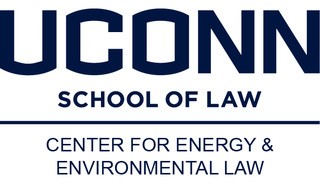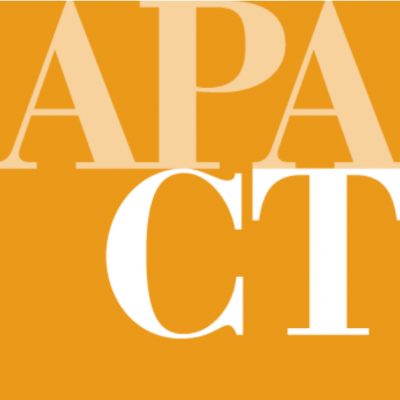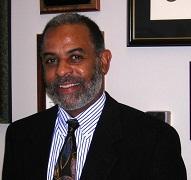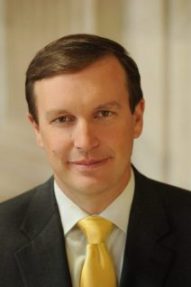Resilient Connecticut (Virtual) Summit
November 20, 2020
9:00 am – 11:45 am
During the second Summit, participants:
- Explored the relationship between equity, environmental justice, and climate change;
- Learned about new tools and policies to assess and address climate vulnerability; and
- Recognized resilience planning opportunities where systems overlap with climate risks.
Remarks from Senator Chris Murphy
Resilient Connecticut Summit Agenda (.pdf)
Additional videos are being uploaded to our YouTube page. We hope you subscribe.
Presentation links appear in the agenda below.
|
9:00 - 9:45
|
Welcome and Introduction
|
|
|
Project overview and update
|
|
9:45 - 10:25
|
Keynote Address
Dr. Hill discussed the close interrelationship between environmental justice and climate justice in the United States and how the victims of environmental/climate injustice are potential "climate refugees." Environmental/climate justice are environmental, public health, and public policy issues. He also discussed how attorney generals in several different climate change cases are seeking to address these issues using traditional state environmental laws, environmental justice legislation, environmental rights amendments, public trust laws, as well as consumer protection laws. Addressing Instances of Climate Environmental Injustice Through Climate Litigation Slides Barry E. Hill journal article regarding climate liability litigation Moderator: Joe MacDougald, Professor in Residence, Exec. Director of Center for Energy & Environmental Law, UConn School of Law Speaker: Barry E. Hill, Adjunct Professor, Vermont Law School and Visiting Scholar, Environmental Law Institute |
| 10:25 - 10:30 | Remarks from U.S. Senator Chris Murphy - Recorded Remarks |
| 10:30 - 10:35 | Break |
| 10:35 - 11:45 | Breakout Session (see table below for description of topics and speakers) |
10:30 - 11:30 Breakout Topics |
Speakers |
| Track 1
Resilience Planning: Challenges, Opportunities and Interconnections - Presentations:
|
Moderator: John Truscinski, CIRCA
|
| Track 2 Building Technical Capacity and Tools for Resilience - Presentations: | Moderator: Joanna Wozniak-Brown, CIRCA Assistant Director of Resilience Planning
|
| Track 3 Climate Adaptation Policy and Implementation - Presentations: | Moderator: Joe MacDougald, UConn School of Law
|
| 11:45 | Summit Close |
Breakout Session Summaries
Track 1 – Resilience Planning: Challenges, Opportunities and Interconnections
Summary: The impacts of climate change in Connecticut affect human health, ecological systems, the built environment, and critical infrastructure, as well as economic opportunities. Often these impacts are felt across municipal boundaries and watersheds and may require a regional approach to identifying shared investments and decision-making opportunities to address common challenges. How do investments in transportation, housing, infrastructure, and ecosystems connect and support each other? How can the Resilient Connecticut project, utilizing the concepts of “resilience corridors” and “zones of shared risk”, help create a shared vision of a more climate resilient future; one in which communities are more equitable, affordable, connected, and healthy? This session will feature a round table discussion of major challenges and opportunities in Fairfield and New Haven counties. The session will also outline the planning approach to identifying regional zones of shared risk and the development of adaptation scenarios in phase II of Resilient Connecticut.
Moderator: John Truscinski, CIRCA
Speakers:
- Norman Garrick, Professor in Civil and Environmental Engineering, UConn
- David Murphy, Manager of Water Resource Planning, Milone & MacBroom
Round Table Members:
- Norman Garrick, Professor in Civil and Environmental Engineering, UConn
- David Kooris, President, Stamford Downtown
- Melissa Kaplan-Macey, Vice President, State Programs & Connecticut Director at Regional Plan Association
- Denise Savageau, Environmental Planner
Track 2 – Building Technical Capacity and Tools for Resilience
Summary: In order to adapt to a changing climate, Connecticut municipalities need resources and tools to conduct planning and regulatory functions that address their vulnerabilities. Resilient Connecticut is parlaying CIRCA’s climate research into tailored tools and crafting a Municipal Toolkit to support municipalities in their efforts. This session introduces initial components of the Municipal Toolkits. Join our presenters as they explore the municipal “Report Card” and regional vulnerability assessment approach, using the city of Milford as a case study. Milford’s City Planner, David Sulkis will provide feedback on the demonstration. These and other components of the Toolkit will help municipalities better understand their physical and social vulnerabilities, cross-jurisdictional resilience challenges, and resilience opportunities through a series of instructional videos, technical tools (e.g. data viewers and vulnerability assessments), and planning tools (e.g. , resilience planning checklist, model ordinances and regulations, and legal case studies).
Moderator: Joanna Wozniak-Brown, Assistant Director of Resilience Planning, UConn CIRCA
Speakers:
- Yaprak Onat, Assistant Director of Research, UConn CIRCA
- David Sulkis, City Planner, Milford Planning and Zoning Office
- Victoria Brudz, Environmental Scientist, Milone & MacBroom (MMI)
Track 3 – Climate Adaptation Policy and Implementation
Summary:
This breakout session will feature two speakers currently working on state-level initiatives related to climate policy. Dr. Sara Bronin, a land-use expert and law professor at the University of Connecticut, is investigating ways that climate policy affects land-use policy and local zoning, which often lead to increased racial segregation. Professor Bronin will describe Desegregate CT, a new effort underway that focuses on statewide reform of land use and housing policies that can lead to more resilient and equitable communities. Another current statewide initiative of note is a focus of the Governor’s Council on Climate Change (GC3), which was established in 2015. Dr. Rebecca French, CT DEEP Director of the Office of Climate Planning, will speak about the recent GC3 Working Group reports and public review process. She will highlight recommendations and next steps to address the growing impacts of climate change in Connecticut including strategies for financing, infrastructure, agriculture, natural resources, and public health.
Moderator: Joe MacDougald, UConn Professor in Residence, Exec. Director of Center for Energy & Environmental Law
Speakers:
- Sara Bronin, Faculty Director, Center for Energy and Environmental Law, UConn
- Rebecca French, Director of the Office of Climate Planning, CT DEEP
This event is eligible for 2 hours of CLE credit for legal practitioners from the UConn School of Law Center for Energy and Environmental Law (CEEL). Please email Louanne.Cooley@uconn.edu
to request this credit and verify your attendance.

The Summit is also eligible for 2.75 hours of CM credit through the Connecticut Chapter of the American Planning Association.

Funding for this project is provided by the United States Department of Housing and Urban Development through the Community Block Grant National Disaster Recovery Program, as administered by the State of Connecticut’s Department of Housing. The Summit is being planned in partnership with UConn School of Law CEEL.

Barry E. Hill

Keynote Address
Barry E. Hill is an Adjunct Professor at the Vermont Law School and Visiting Scholar at the Environmental Law Institute, which is a Washington, DC based environmental law and policy think tank. Previously, Mr. Hill was the senior counsel for environmental governance of the Office of International and Tribal Affairs at the U.S. EPA.
Senator Chris Murphy

Summit Remarks
Chris Murphy is serving as a U.S. Senator from Connecticut since 2013. Before being elected to Congress, Murphy was a member of both chambers of the Connecticut General Assembly, serving two terms each in the Connecticut House of Representatives and the Connecticut Senate. Senator Murphy attended Williams College in Massachusetts and graduated from the University Of Connecticut, School Of Law.
LOCATION
Virtual (a link to join will be sent to registrants by Total Webcasting on 11/19/2020)
CONTACT
Katie Lund, CIRCA Director of Engagement, katie.lund@uconn.edu
